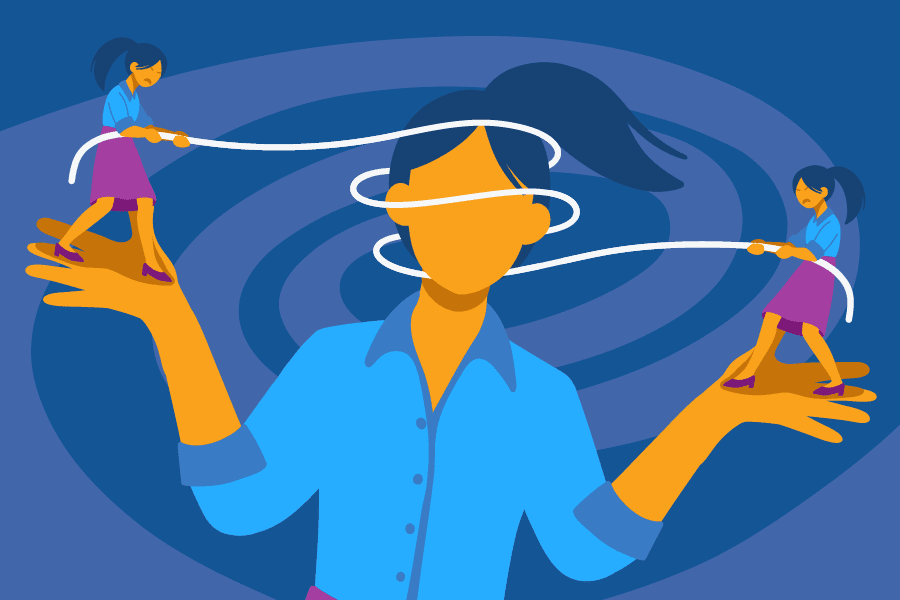What is a Learning Difficulty or Learning Disability?
Learning Difficulties or Learning Disabilities are a grouping or umbrella term for a host of disorders that involve specific neurological processing issues. They should not be confused with Learning Problems, which are impairments a person may have such as hearing, seeing or a cognitive disability.
As the name implies, these disorder cause specific issues with someone’s ability to learn. Usually these issues are in reading, writing, or math, however, they tend to carry over into other more general areas like organization, attention, time management, memory, critical thinking and reasoning skills, and/or non-concrete thinking.
It is important to view these disorders as going beyond just an academic environment as the effects of the disabilities can cause struggles in relationships and jobs as a person gets older. They can also deeply affect a child’s self confidence and put him or her at risk for substance abuse.
Onset & Diagnosis of Learning Disabilities
Learning Difficulties are usually said to occur during childhood or early adolescence, however, in less severe cases recognition of symptoms may occur later. It is also hard to define onset as certain circumstances can help to bring light to symptoms. Because these disorders affect learning, problems tend to be initially recognized at school.
A key sign is a student being below the average for no discernible reason.
Intelligence does not play a role in Learning Difficulties and until evaluations are done it can seem that there is just something amiss. The student is not keeping up or doing well, but there is nothing to pinpoint as the issue.
A teacher or guidance counselor may recommend that the parents seek out further help and get a child professionally evaluated by a psychologist. Until a child is fully evaluated, no specific diagnosis can be made.

Signs and Symptoms of Learning Difficulties or Disabilities
As Learning Difficulties or Disabilities is a generalized term, there are no exact symptoms other than difficulty in learning. The symptoms that are seen within the evaluation depend on the specific processing issue experienced.
Some of the disorders within this generalized grouping are:
- Auditory Processing Disorder (APD)
- Dyslexia
- Dysgraphia
- Dyscalculia
- Nonverbal Learning Disabilities
- Language Processing Disorder – a subtype of APD
- Visual Perceptual/Visual Motor Deficit
Each of these diagnoses indicate a certain neurological issue that is occurring and impeding the individual from reaching his or her full potential.
There is no cure or particular medication that can alleviate the problem, however, there are many strategies and highly developed methods that can help a student work with their disability and learn in a way that is appropriate to his or her processing.
Learning Difficulties Often Co-occur with Substance Abuse and Addiction
Children with Learning Difficulties, particularly those that go untreated or are severe, can find themselves falling into negative reinforcement patterns. These individuals are often of above average intelligence and are more than aware of their low performance in school.
No matter how much effort they put in, they may see no improvement and begin to stop trying rather than continuing to be disappointed with failure. Oftentimes they seek out ways to mask or escape their unhappiness and low self confidence leading them to start experimenting with substances and other risky behaviors.
Those with these learning disorders are at a higher risk than the average person to fall into substance abuse, especially when they have gone untreated or undiagnosed. They are also more likely to have behavioral issues like defiance and truancy.
Kids and adolescents that struggle with these disorders often come to understand that no matter how hard they work, they cannot improve; that fundamentally their performance or success is seemingly outside their control. They often seek out ways to try to exert control over their worlds by using or acting out.
It is important for parents to be aware of the high potential risk for substance abuse and know that a teen drug or alcohol treatment center or an outpatient rehab facility for their adolescent may be necessary.
Treatment Options for Learning Disabilities & Substance Abuse
The most important step in supporting your child or loved one is finding help and answers. With Learning Difficulties, the sooner diagnosis occurs the more well prepared your child will be. The sooner treatment occurs the less likely substance abuse issues may be, however, your child may still be at risk.
If you or someone you know shows sign of having a substance usage problem paired with a Learning Disability, it is essential to get help that is tailored to the specific needs. Teens and older adolescents are particularly at risk, and we are a treatment facility that can support you and your family.


Online Treatment Programs
Our virtual IOP program offers the same programming that we offer in person, all online – this is ideal for those who live too far to drive to an addiction center, have transportation issues, or have health concerns that make in-person treatment challenging.




